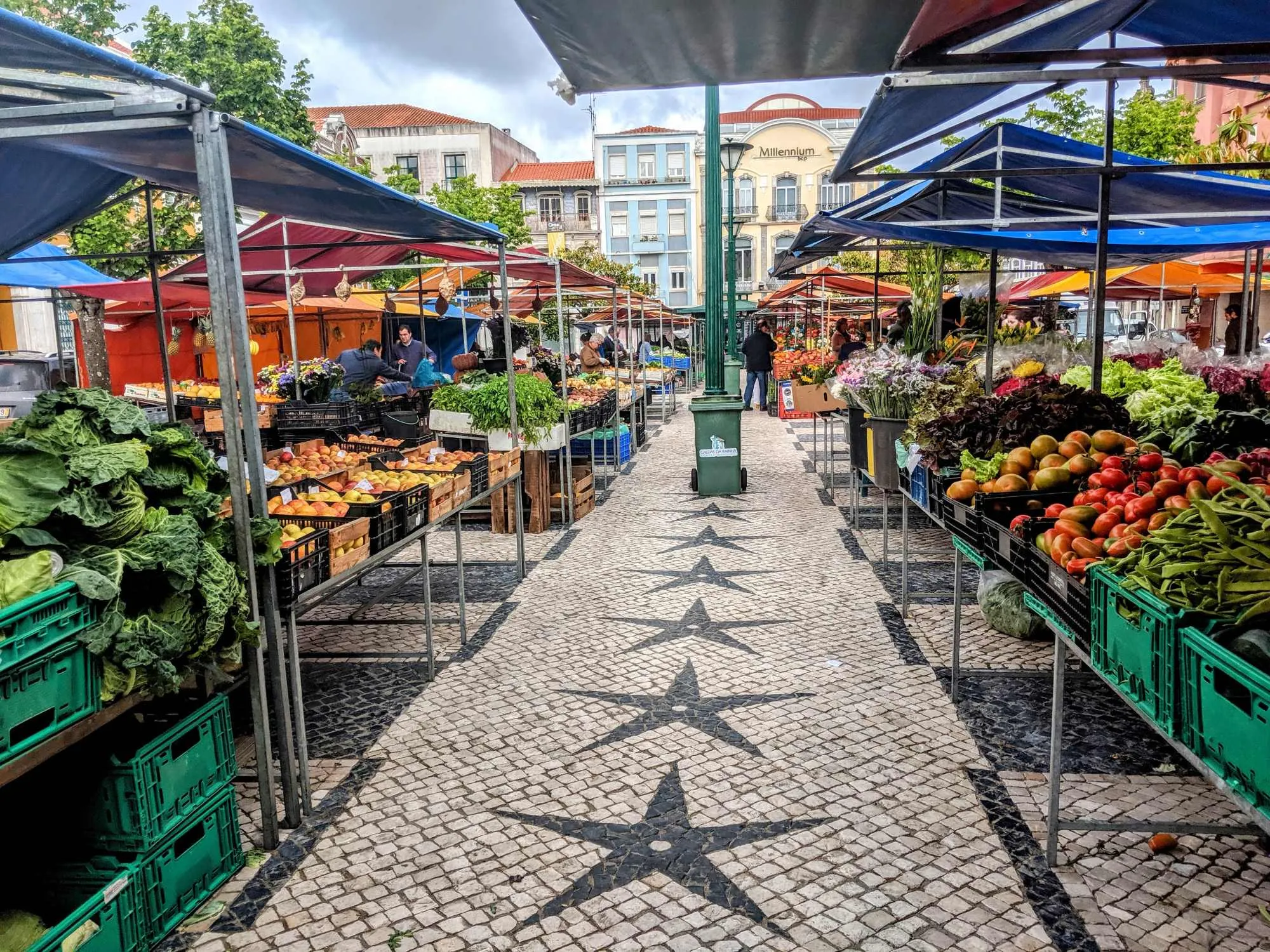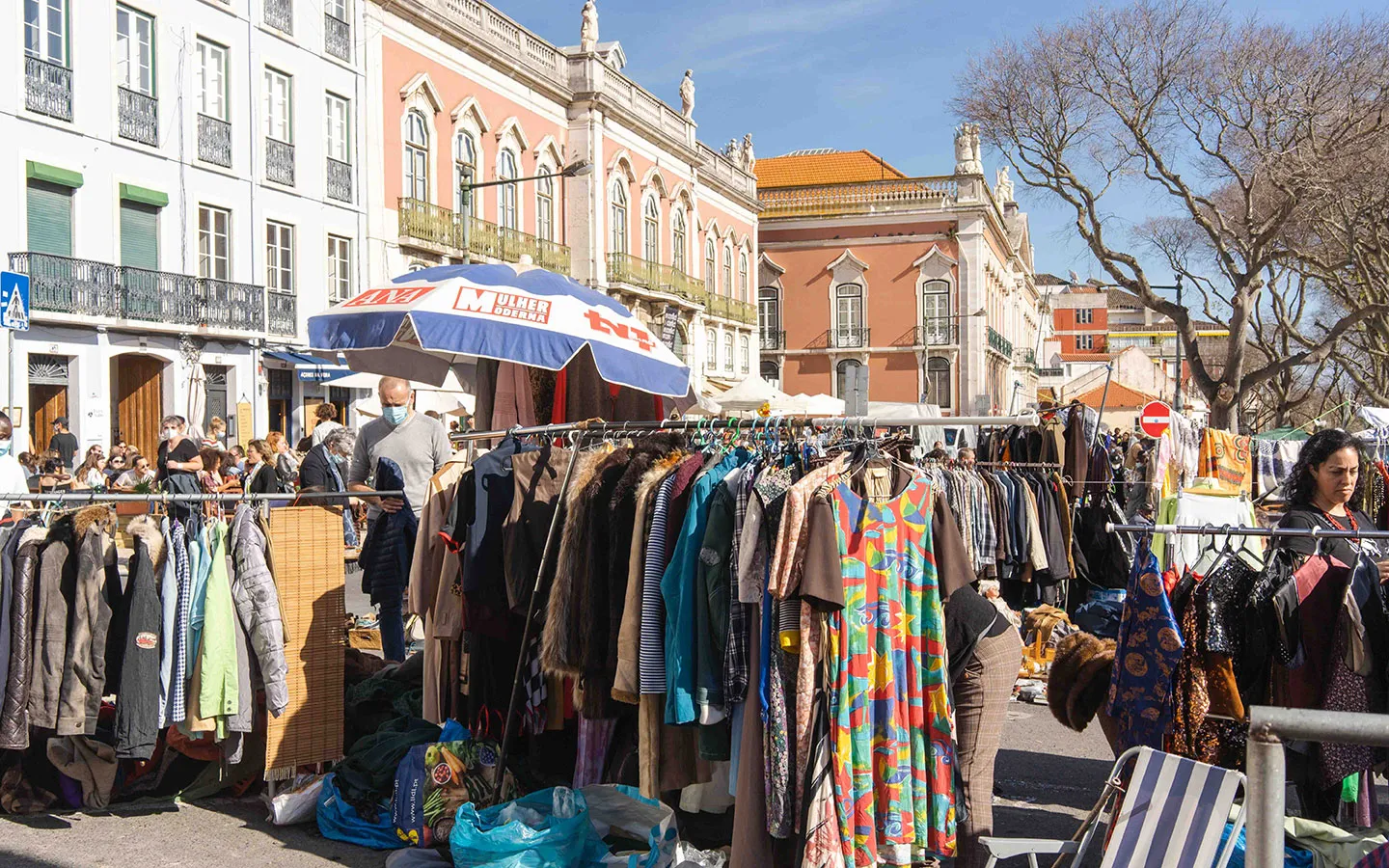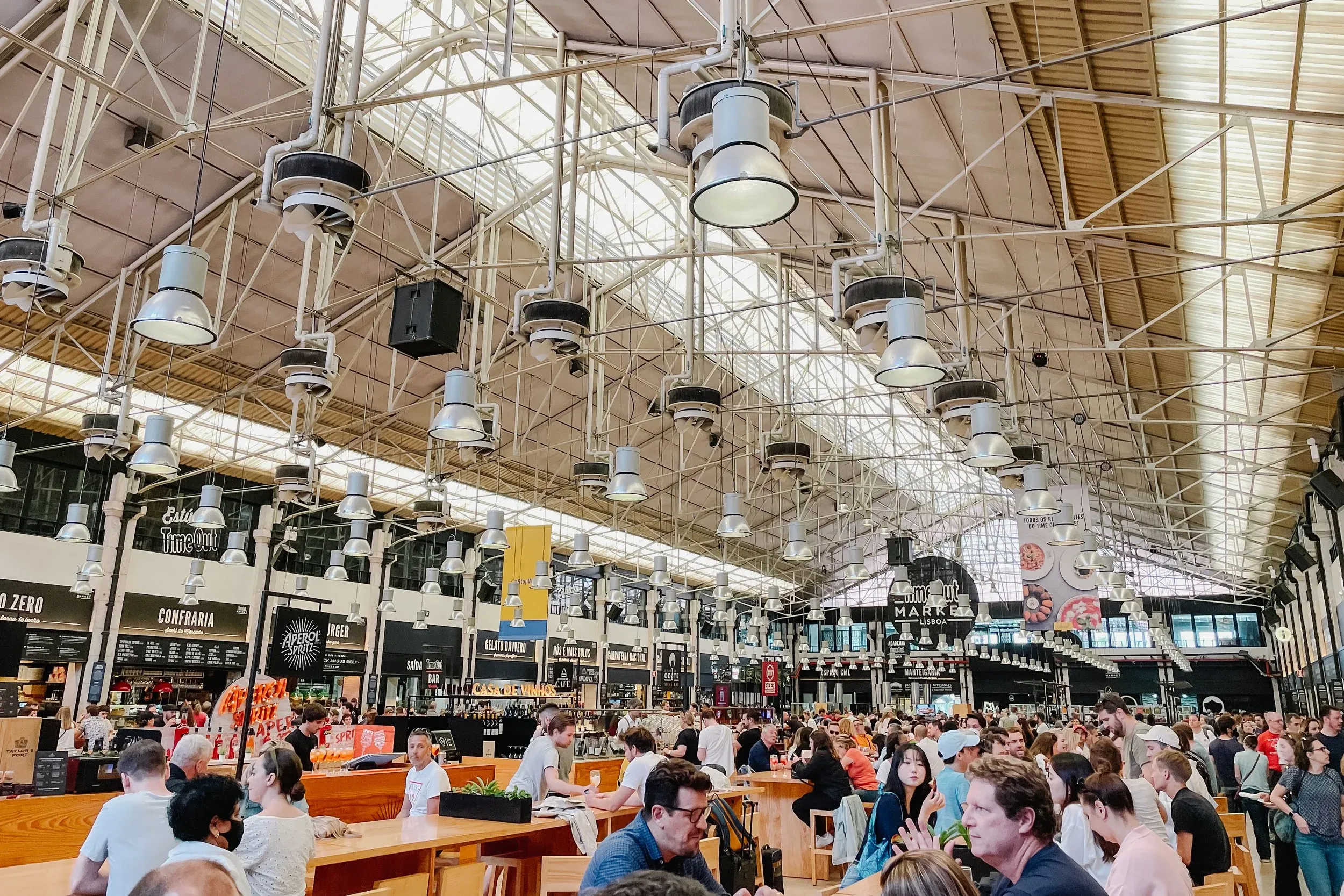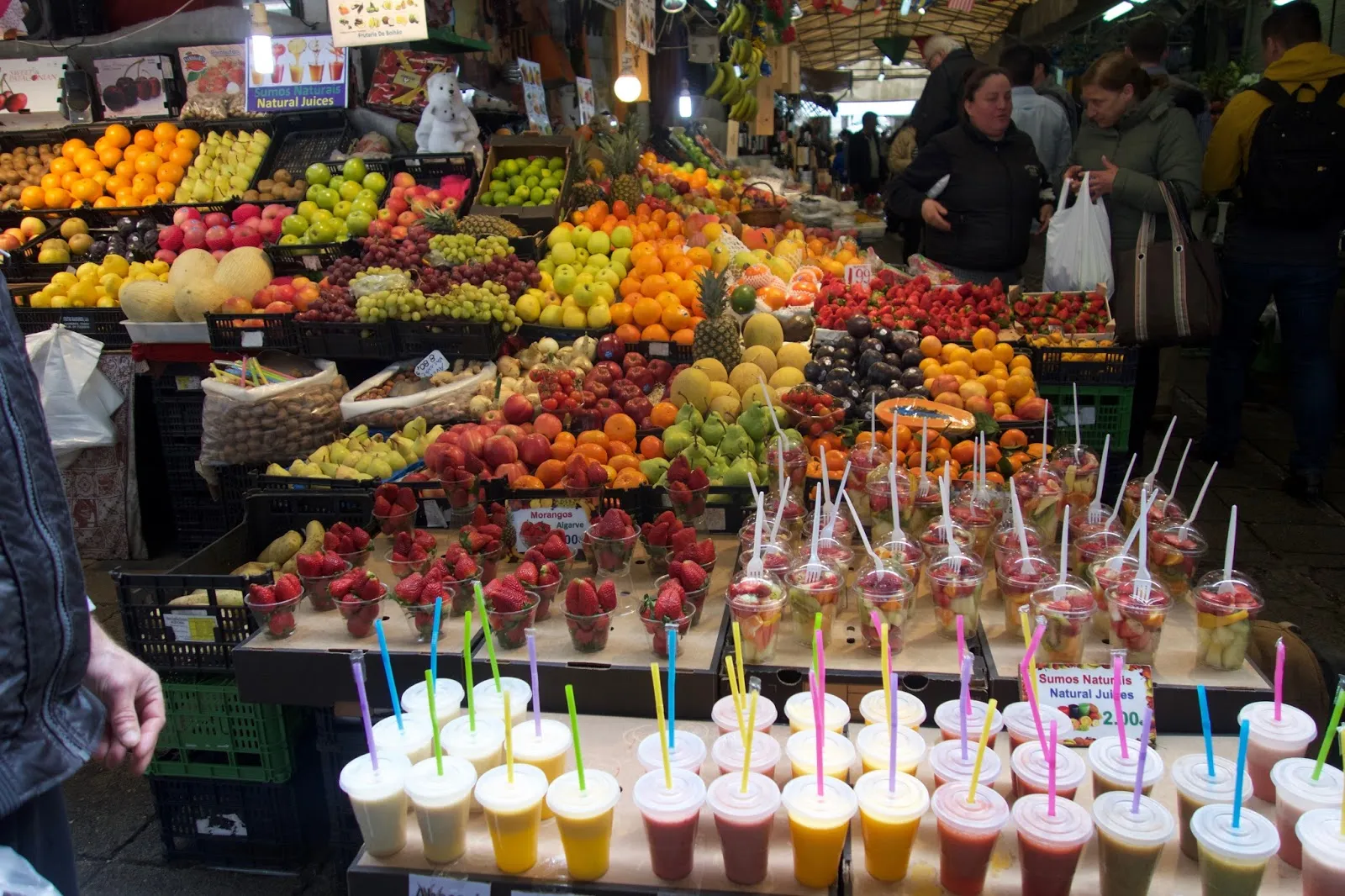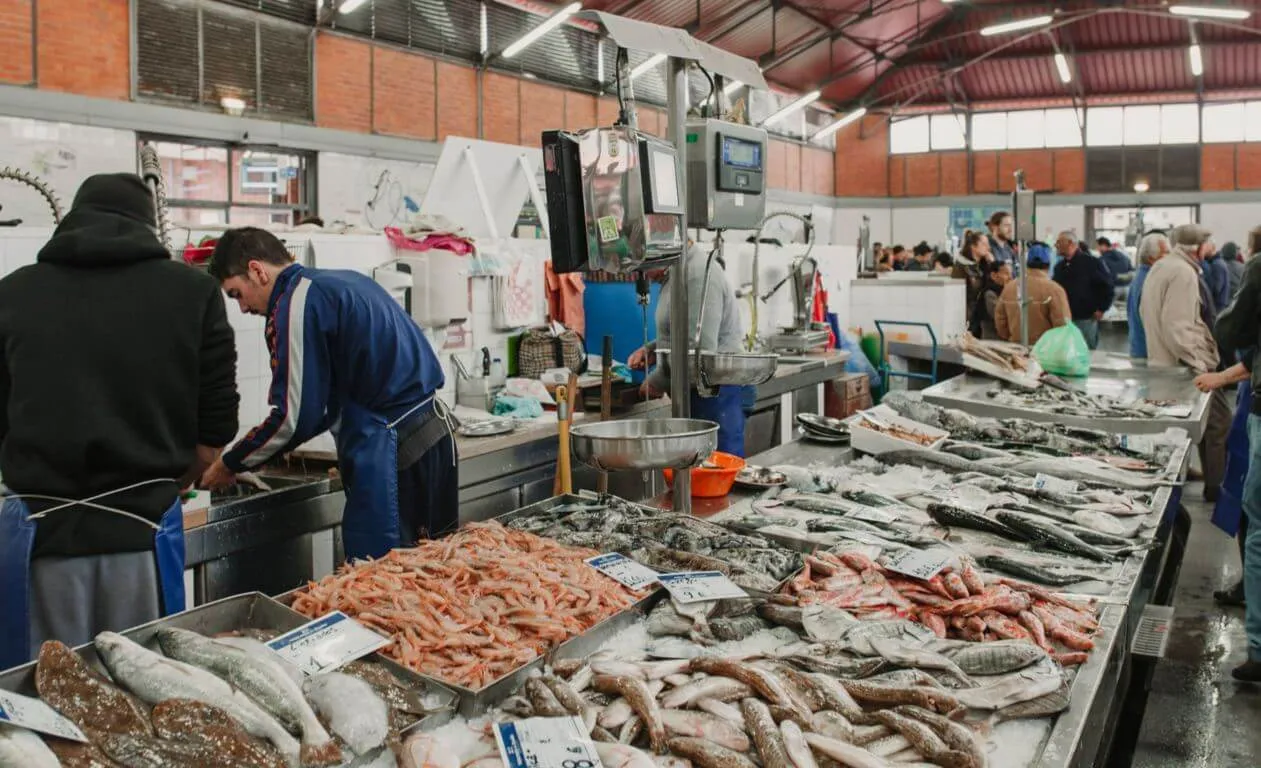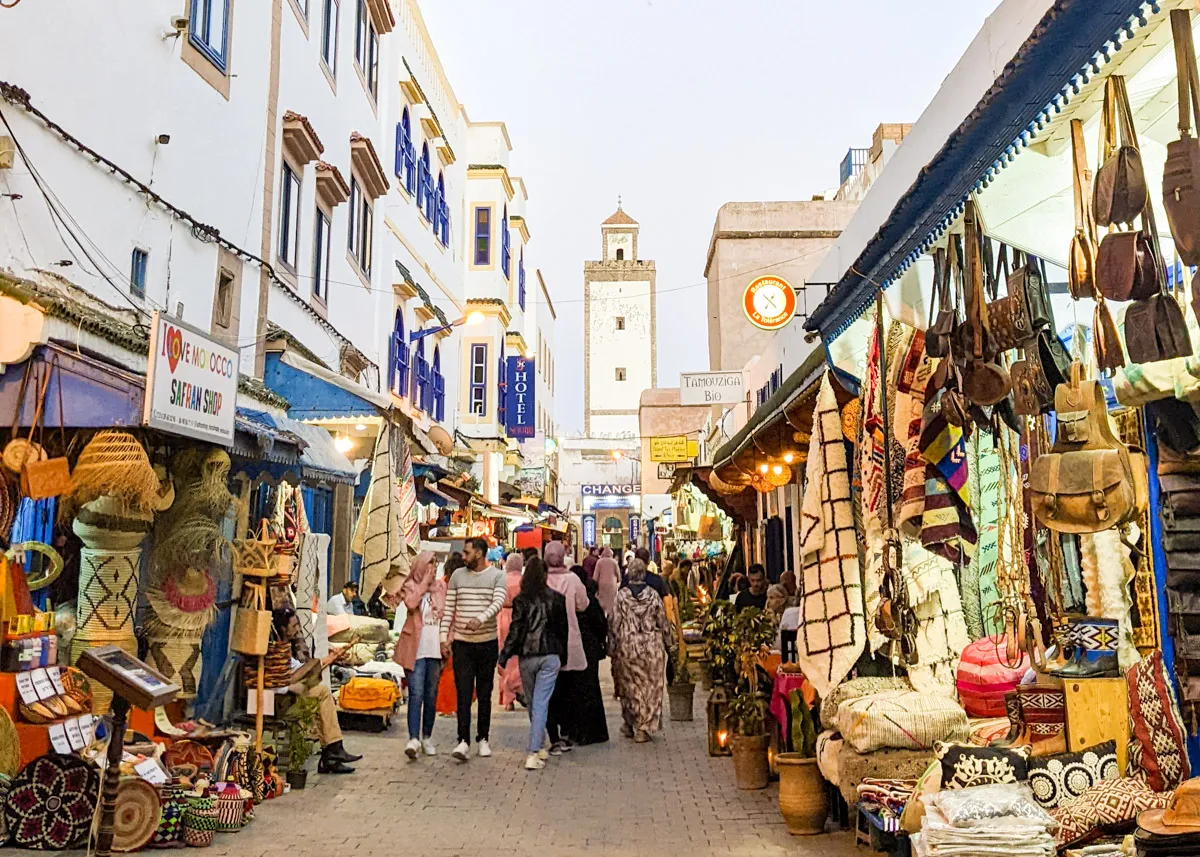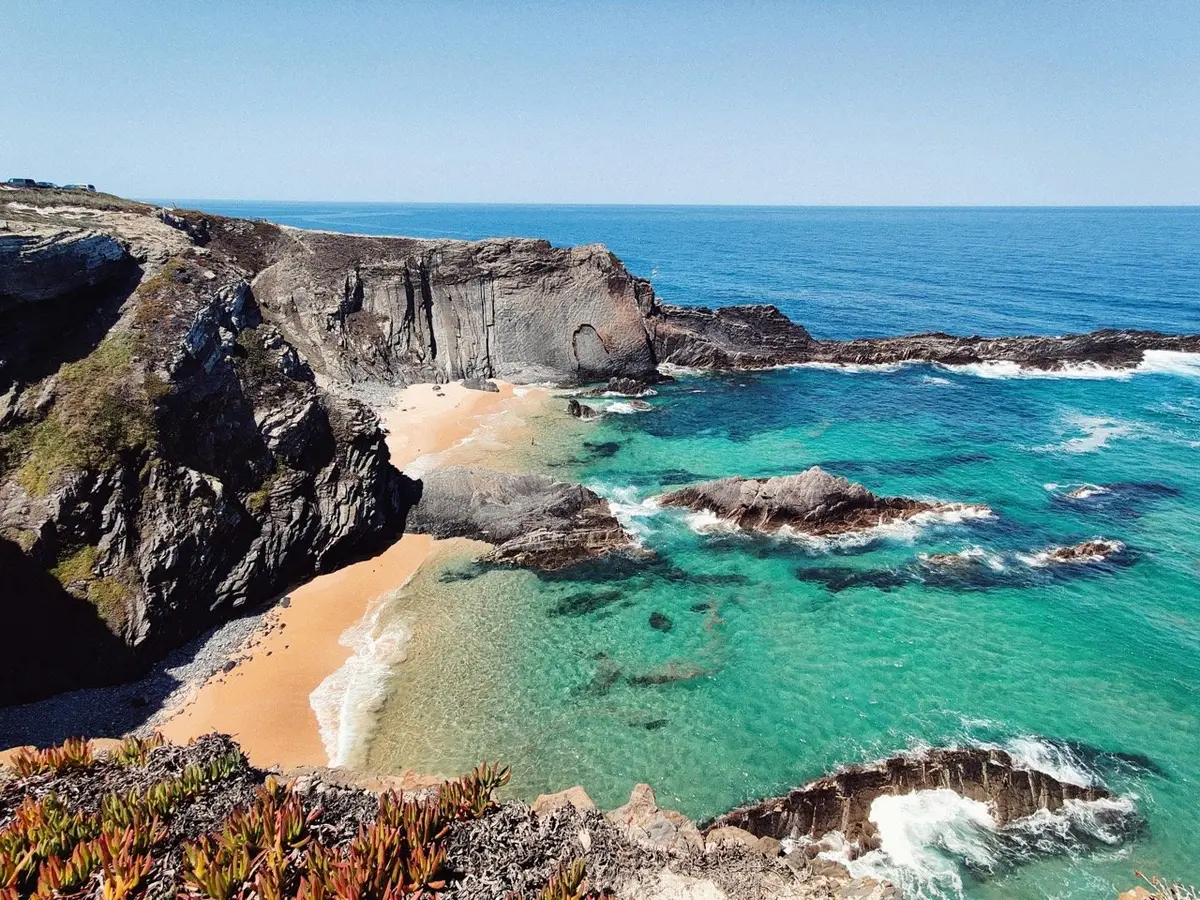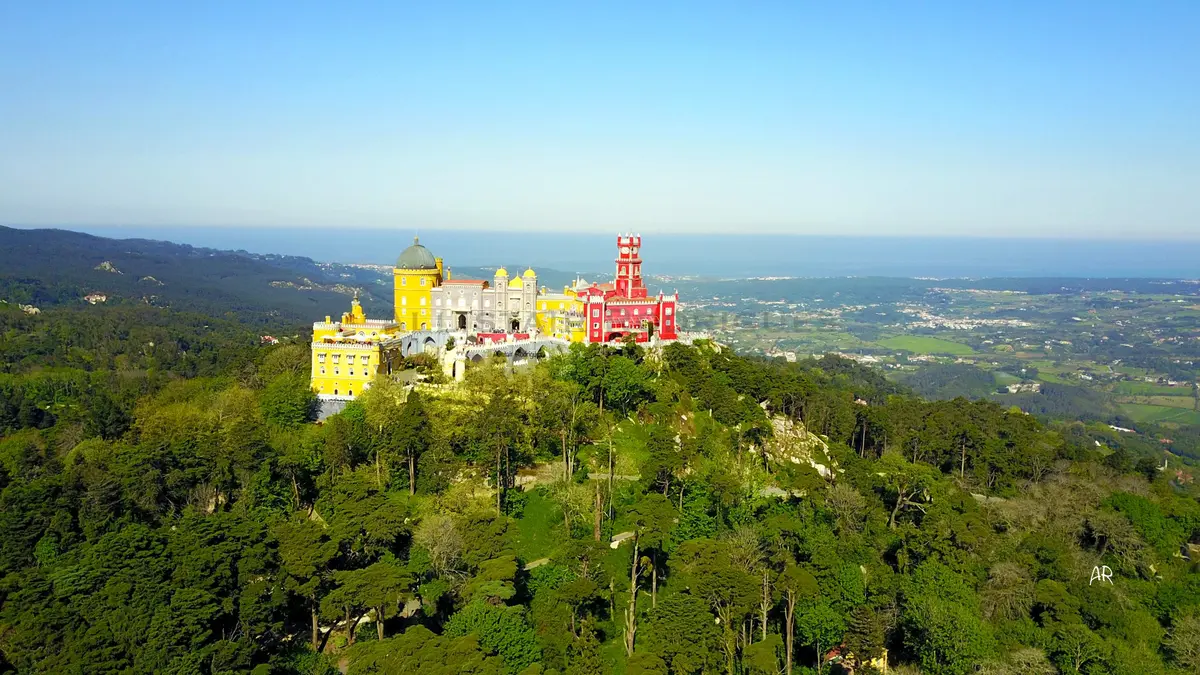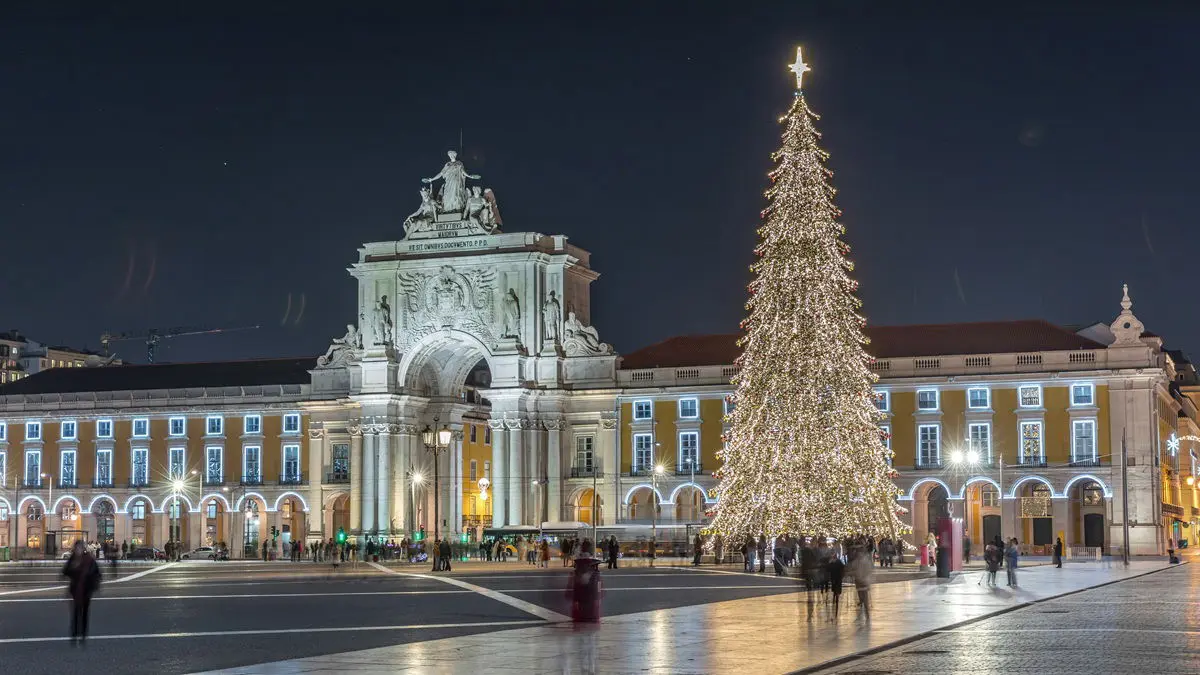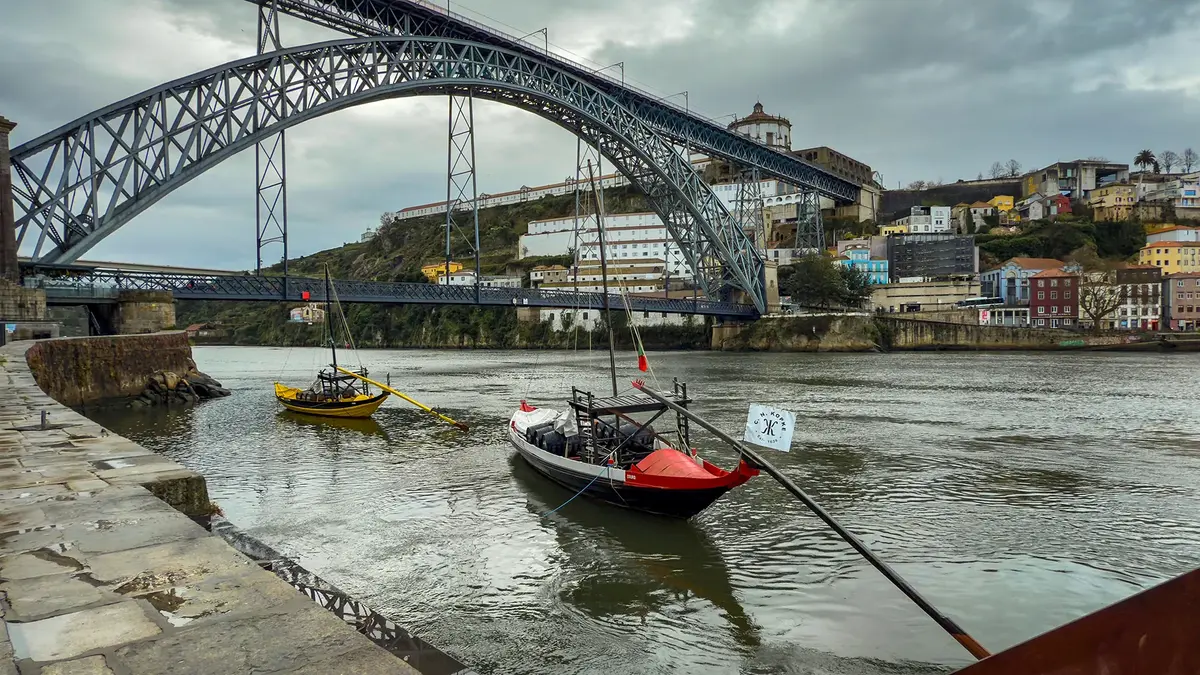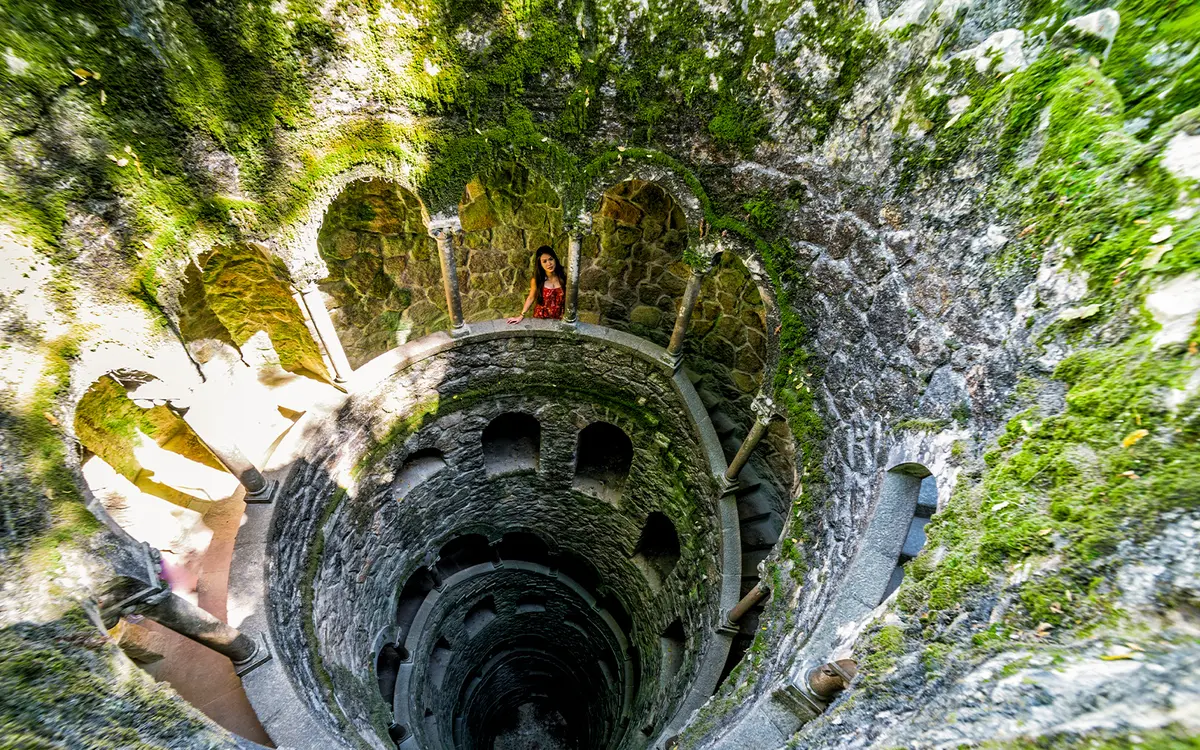Step into any of the Portugal markets, and you step into the country’s beating heart. The air hums with a unique energy—a symphony of vendors calling out the day’s fresh catch, the clatter of hand-painted ceramics being carefully stacked, and the warm, melodic cadence of Portuguese chatter. These vibrant hubs offer a sensory feast where the sharp, salty scent of the nearby Atlantic mingles with the earthy aroma of ripe figs and the irresistible sizzle of chouriço grilling over coals. They are not mere places of commerce; they are living museums, community squares, and the most direct path to the soul of Portugal’s culture and cuisine. Drawing on years of firsthand exploration, this guide offers the insider tips and practical advice needed to navigate the best Portugal markets like a seasoned local, not a first-time tourist.
A Snapshot of the Best Markets in Portugal
For the traveler eager to dive straight in, this overview provides a snapshot of the country’s most iconic market experiences. Each offers a distinct window into the local culture, from historic treasure troves to modern culinary temples.
- Feira da Ladra, Lisbon – Portugal’s oldest flea market, perfect for hunting historic azulejos and vintage treasures. Visit on a Tuesday morning for a slightly less crowded, more local experience than the bustling Saturday market.
- Mercado do Bolhão, Porto – The grand dame of traditional food markets, offering a deep dive into Porto’s culinary soul and northern traditions. Explore both floors: fresh produce downstairs, and restaurants and shops on the upper level for a sit-down meal.
- Mercado da Ribeira (Time Out Market), Lisbon – A gourmet food hall featuring Portugal’s top chefs in a vibrant, modern setting. Arrive on a weekday to avoid the biggest crowds and secure a seat at the communal tables before ordering your food.
- Mercado Municipal de Loulé, Algarve – A stunning architectural landmark filled with regional Algarve products. Plan your visit for a Saturday morning when the market spills outdoors with a farmers’ market, creating the full, bustling experience.
- LX Factory Sunday Market, Lisbon – The creative hub for discovering local artists, bohemian fashion, and unique handmade goods. Make a full day of it; start with brunch at one of the factory’s cafes before exploring the market and surrounding art galleries. A crucial element to understand when planning your visits is the “Saturday Effect.” Across Portugal, Saturday is when the market scene reaches its zenith. In Loulé and Olhão, the main municipal markets are supplemented by sprawling outdoor farmers’ and gypsy markets, transforming the entire area into a vibrant hub of activity. In Lisbon and Porto, the weekly flea markets are at their busiest and most comprehensive on Saturdays. This heightened energy and expanded selection of goods create an electrifying atmosphere that is an experience in itself. However, this vibrancy comes with crowds. A Saturday visit promises the most dynamic and complete market experience, while a weekday visit provides a more relaxed, intimate, and arguably more authentic glimpse into the daily rhythms of local life at these Portugal markets.
Understanding Portuguese Markets: A Traveler’s Glossary
Understanding the local terminology is the first step to navigating Portugal’s market scene with confidence. The country’s markets generally fall into three distinct categories, each offering a unique experience.
- Mercados (Municipal Markets) – These are the traditional, often covered, municipal markets that serve as the epicenters of daily life for local communities. These are the places where residents shop for their weekly groceries, from the freshest fish caught that morning to seasonal fruits and vegetables trucked in from the countryside. They are unapologetically authentic, offering a raw, unfiltered glimpse into Portuguese life. Prime examples include the fish-centric Mercado Municipal de Olhão, where the Algarve’s maritime soul is on full display, and Lisbon’s Mercado 31 de Janeiro, a bustling neighborhood staple that remains a favorite among locals.
- Feiras (Fairs & Flea Markets) – The term feira refers to a fair or, more commonly for travelers, a flea market. These are the sprawling, wonderfully chaotic weekly events where the thrill of the hunt is the main attraction. Here, you’ll find a treasure trove of antiques, second-hand goods, vintage clothing, old books, and handmade crafts spread out on blankets and tables. Unlike the fixed prices of a mercado, bargaining is often expected and part of the experience at a feira. Lisbon’s famous Feira da Ladra and Porto’s Feira da Vandoma are the country’s most celebrated examples of these flea markets in Portugal.
- Gourmet & Modern Markets – A more recent evolution in Portugal’s market scene is the rise of modern food halls and creative hubs, often housed in beautifully revitalized historic buildings. These spaces blend tradition with a contemporary, curated approach. The most famous example is Lisbon’s Time Out Market, which transformed one half of the historic Mercado da Ribeira into a gourmet food court featuring stalls from the city’s top chefs. These markets offer a more polished, accessible experience, perfect for sampling a wide variety of high-quality food and discovering unique, locally designed goods.
Exploring Lisbon Markets: A Tale of Two Cities—Historic and Hip
Lisbon’s market scene is a perfect reflection of the city itself: a captivating blend of deep-rooted history and vibrant, contemporary cool. From ancient flea markets where stories are embedded in every object to buzzing creative hubs driving the city’s modern pulse, each of these Portugal markets offers a distinct narrative.
Feira da Ladra (The Thieves’ Market): A Historic Treasure Hunt
With roots stretching back to the 13th century, Feira da Ladra is Lisbon’s oldest and most iconic flea market. After centuries of moving throughout the city, it finally settled in its current location in the Campo de Santa Clara, in the shadow of the magnificent National Pantheon. Its name, which translates to “Thieves’ Market,” is shrouded in lore; theories suggest it could refer to stolen goods sold here in centuries past, to the old Portuguese word for lice found on antiques, or even to a derivation of a medieval Parisian fair’s name.
Every Tuesday and Saturday, the square and surrounding streets transform into a sprawling labyrinth of stalls, attracting a lively mix of locals, treasure hunters, and curious travelers. The market is a true cabinet of curiosities, offering an eclectic and unpredictable mix of items. You can find everything from antique furniture and vintage tableware to second-hand books, old vinyl records, military memorabilia, and handmade jewelry.
One of the most tempting items you will see are the beautiful, hand-painted azulejos (ceramic tiles) that are synonymous with Portuguese architecture. However, this is where a traveler’s desire for an authentic souvenir runs into an important ethical consideration. The market for vintage tiles is completely unregulated, and a significant number of the tiles sold at Feira da Ladra have been stolen—pried from the walls of historic buildings, often causing irreparable damage to the nation’s heritage. For a responsible visitor, the advice is clear: admire the tiles, but do not buy the antique ones from flea market stalls. Instead, seek out reputable artisan shops that sell new, handmade tiles.
Know Before You Go:
- Address: Campo de Santa Clara, Alfama
- Days: Every Tuesday and Saturday
- Hours: Approximately 9:00 am to 6:00 pm
- Best time: Tuesday morning for fewer crowds
Mercado da Ribeira (Time Out Market): A Gourmet Celebration
The Mercado da Ribeira is a landmark with a split personality. On one side, it remains a traditional municipal market where locals have shopped for fresh produce since 1892. On the other, it houses the Time Out Market, a modern, buzzing food hall launched in 2014 by Time Out Lisboa magazine. This transformation has turned the historic iron-and-glass building into one of the city’s top attractions, a place where the best of Lisbon’s culinary scene is gathered under one roof.
The food hall features over 40 kiosks, including outposts from some of Portugal’s most celebrated chefs. For a taste of high-end cuisine, look for the stalls by Michelin-starred Henrique Sá Pessoa or the traditional-with-a-twist dishes from Marlene Vieira. For something more casual but equally delicious, the Croqueteria serves sublime beef and pork croquettes, while Manteigaria is a must-visit for some of the city’s best pastéis de nata. This Lisbon food market is designed for grazing, allowing you to assemble a meal from multiple vendors.
While popular with tourists, it can become intensely crowded, making navigation challenging. The key to a pleasant experience is strategy. To avoid the worst of the crowds, visit on a weekday for lunch or an early dinner. A crucial tip is to find and claim your seats at a communal table before you go to order food, as securing a spot during peak hours can be competitive.
Know Before You Go:
- Address: Avenida 24 de Julho 49, Cais do Sodré
- Hours: Daily, 10:00 am to midnight (later on weekends)
- Best time: Weekday afternoons for smaller crowds
LX Factory Sunday Market: The Creative and Bohemian Hub
Set within a sprawling 19th-century industrial complex in the Alcântara neighborhood, the LX Factory is Lisbon’s creative heart. What was once a fabric manufacturing facility is now a dynamic “creative island” filled with art studios, concept stores, and unique restaurants. Every Sunday, its main street transforms into the LX Market, a vibrant affair that attracts a young and creative crowd with its distinctly artsy, bohemian air.
The market is a curated showcase of local and independent talent. Stalls are filled with vintage clothing, handmade jewelry, organic foods, quirky home decor, and original art from up-and-coming Portuguese designers. It’s the perfect place to find a truly unique souvenir and explore local crafts in Portugal. Beyond the market stalls, the permanent shops offer more discoveries, from beautiful Portuguese pottery at Cerâmica Factory to sustainable footwear at Rutz Cork.
The LX Factory is a destination in itself, so plan to spend several hours. A perfect Sunday involves arriving for brunch, browsing the market, and then dedicating the afternoon to exploring the rest of the complex. Don’t miss Ler Devagar, one of the world’s most beautiful bookstores, housed in a former printing press.
Know Before You Go:
- Address: Rua Rodrigues de Faria 103, Alcântara
- Days: Every Sunday
- Hours: Approximately 10:00 am to 6:00 pm
Mercado de Campo de Ourique: The Authentic Neighborhood Gem
For those seeking an experience away from the main tourist trail, Mercado de Campo de Ourique is the answer. Tucked away in a charming, village-like residential neighborhood, this market is often cited as the insider’s alternative to the Time Out Market. Inaugurated in 1934 and tastefully refurbished, it has masterfully preserved its dual function: the outer ring of stalls still serves the community with fresh fish, meat, and produce, while the central area has been transformed into a high-quality food court with communal seating.
The food stalls here are a mix of traditional Portuguese flavors and gourmet offerings. You can find everything from fresh seafood and high-quality charcuterie to excellent burgers and tapas. The presence of beloved local brands like the Gleba bakery underscores the market’s commitment to quality and authenticity. It’s a place where you can enjoy a fantastic meal alongside Lisbon residents doing their daily shopping, making it one of the most authentic Portugal markets.
The market serves as a perfect anchor for exploring the wider Campo de Ourique neighborhood, known for its small specialty shops and tranquil atmosphere. To enjoy the market at its most relaxed, visit on a weekday for lunch.
Know Before You Go:
- Address: Rua Coelho da Rocha 104, Campo de Ourique
- Hours: Daily, open from morning until late evening
Discovering Porto Markets: Northern Soul and Timeless Charm
Porto’s markets are a reflection of the city’s character: deeply historic, a little gritty, and full of soul. Here, grand architectural landmarks coexist with sprawling, chaotic flea markets, each offering a unique portal into the life of Northern Portugal.
Mercado do Bolhão: The Grand Dame of Porto
Mercado do Bolhão is more than a market; it’s a city institution. Inaugurated in 1914, its magnificent two-story, neoclassical iron structure has been the heart of Porto’s culinary life for over a century. After falling into a state of beloved decay, the market underwent a massive, multi-year renovation, reopening in 2022 to much fanfare. The restoration managed a delicate balance: the building is now clean, modern, and organized, yet it has miraculously retained its soul.
The ground floor of this fantastic Porto food market is a vibrant mosaic of fresh produce, colorful flowers, butcher shops, and fishmongers selling the day’s catch. The market is a fantastic place to discover regional specialties from Northern Portugal, including artisanal cheeses, smoked meats, and a vast selection of high-quality Port wine. It is particularly famous for its stalls dedicated to conservas (canned fish), offering beautiful tins of sardines, mackerel, and tuna that make for perfect, authentic souvenirs.
Be sure to explore both levels. The ground floor is for fresh goods, while the upper floor houses a variety of excellent restaurants and shops. The best way to experience Bolhão is to engage with the vendors; they are famously chatty and passionate about their products and love to offer recommendations.
Know Before You Go:
- Address: Rua Formosa, 4000-214
- Hours: Monday to Saturday, 8:00 am to 8:00 pm (closes earlier on Saturdays)
Feira da Vandoma: Porto’s Sprawling Flea Market
Born in the 1970s from students selling used books and clothes, Feira da Vandoma is Porto’s oldest and largest flea market. It is a place that sharply divides opinion. Some visitors dismiss it as filled with junk, while others see it as a true treasure hunt—a place where, with patience and a keen eye, one can find genuine bargains. This is not a curated vintage fair; it is a raw, sprawling, and authentic second-hand market where you have to be willing to dig.
The market’s identity has been shaped by urban development pressures. For years, it was held in the incredibly picturesque Alameda das Fontainhas, offering stunning views of the Douro River and Porto’s iconic bridges. However, in 2016, the market was relocated to its current site on Avenida 25 de Abril in Campanhã. Many longtime vendors and patrons feel this move stripped the market of its historic character and pushed it far from the city’s tourist core.
If you’re prepared to rummage, the possibilities are endless while shopping in Porto. The stalls are piled high with used clothing, old furniture, vinyl records, books, stamps, tools, household appliances, and all manner of bric-a-brac. This is a market for early birds; the most dedicated bargain hunters arrive as soon as it opens on Saturday morning to get the first pick.
Know Before You Go:
- Address: Avenida 25 de Abril, Campanhã
- Days: Every Saturday
- Hours: 8:00 am to 1:00 pm
- Getting There: Accessible via the Nasoni or Estadio do Dragao metro stops
Mercado Porto Belo: The Designer’s Choice
Inspired by London’s famous Portobello Road, Mercado Porto Belo offers a more curated and refined market experience. Held every Saturday in the beautiful, tile-adorned Praça de Carlos Alberto, this market has a distinctly artistic and upscale feel. It’s less of a chaotic flea market and more of a showcase for local designers, artisans, and gourmet food producers.
Here you’ll find high-quality, original items. The stalls feature artistic creations from local craftspeople, including handmade jewelry, unique clothing, vintage accessories, illustrations, vinyl records, and organic products like jams and cakes. The prices are higher than at Vandoma, but this is justified by the originality and craftsmanship of the goods.
Mercado Porto Belo is a perfect Saturday afternoon destination. Its location makes it an ideal starting point for exploring the surrounding area, which is known as Porto’s “art block.” After browsing the market, take a stroll down the nearby Rua Miguel Bombarda, which is lined with contemporary art galleries, concept stores, and trendy cafes.
Know Before You Go:
- Address: Praça de Carlos Alberto
- Days: Every Saturday
- Hours: 10:00 am to 7:00 pm
The Algarve Markets: Sun, Sea, and Seafood
The market scene in the Algarve is deeply intertwined with its geography, celebrating both the bounty of the Atlantic and the rich produce of its inland farms. From architectural marvels to the country’s best fish market, these are essential stops for any visitor to Portugal’s sun-drenched south.
Mercado Municipal de Loulé: An Architectural Icon
The Mercado Municipal de Loulé is arguably the most recognizable landmark in the Algarve’s inland region. Built in 1908, its stunning Moorish-revivalist building, with its distinctive red-domed towers and intricate arches, is a destination in itself. As the largest covered market in southern Portugal, it serves as the commercial and social hub of the town. Inside, the atmosphere is lively and welcoming, a place where locals and tourists mingle among stalls piled high with the region’s finest products.
This Algarve market is a feast for the senses, offering a comprehensive selection of local goods. You’ll find stalls dedicated to fresh fish and seafood, seasonal fruits and vegetables (many of them organic), regional cheeses, and cured meats. It’s also an excellent place to find authentic Algarve handicrafts, including hand-painted pottery, woven textiles, and a wide variety of products made from cork.
To experience the market in its full glory, a visit on a Saturday morning is essential. On this day, the vibrant indoor market is complemented by a large outdoor farmers’ market that fills the surrounding streets, as well as a sprawling gypsy market located a short walk away. This trifecta of markets creates a bustling, festive atmosphere that is the highlight of the week in Loulé.
Know Before You Go:
- Address: Rua José Fernandes Guerreiro, 8100-535 Loulé
- Hours: Monday to Saturday, 7:00 am to 3:00 pm
- Best time: Saturday mornings between 7:00 and 9:00 am
Mercados de Olhão: The Ultimate Fish Market Experience
For any seafood lover, a trip to the Mercados de Olhão is a pilgrimage. Located on the waterfront, the two enormous, red-brick market halls are the heart and soul of the Algarve’s largest fishing port. The atmosphere, especially in the morning, is electric with the buzz of local fishermen and ‘Olhanenses’ as they buy and sell the day’s catch. This is a working market in its purest form, offering a powerful and authentic glimpse into the community’s deep connection to the sea.
The western hall is dedicated entirely to fish and seafood, and the variety is staggering. It is widely considered the best fish market in the Algarve, and perhaps all of Portugal. On any given day, you will see an incredible array of prawns, clams of all sizes, octopus, squid, sea bass, snapper, and mountains of fresh sardines. A must-try local delicacy is the smoked tuna, cured using traditional techniques. The eastern hall is dedicated to fruits, vegetables, meats, and cheeses, making it a one-stop shop for all your culinary needs.
Many visitors recommend taking a guided food tour, which often combines a visit to the market with tastings at the small, traditional taverns frequented by the fishermen themselves. These tours provide invaluable context, offer unique tastings, and give you access to the authentic local hangouts that define the town’s character.
Know Before You Go:
- Address: Avenida 5 de Outubro, Olhão
- Hours: Monday to Saturday, approximately 7:00 am to 1:00 pm
- Best time: Saturday mornings when the market expands outdoors
Tavira’s Market Trio: A Taste of the Eastern Algarve
The charming town of Tavira, in the Eastern Algarve, offers not one but a series of markets that operate on a daily and monthly rhythm, catering to the different needs of the local community. This schedule provides a fascinating look into the patterns of life in a traditional Portuguese town.
- Daily (Mon-Sat): The Mercado Municipal is the town’s main covered market, perfect for daily shopping. Here you’ll find fresh fish, produce, and local specialties. It’s an excellent place to purchase unique regional gifts like Doce do Algarve (beautifully shaped marzipan sweets) and honey from the nearby Ria Formosa Natural Park.
- Monthly (3rd Saturday): The Mercado Mensal is a large, traditional farmers’ market held at the fairgrounds. This is a more rural affair, where you can find everything from homegrown produce and plants to clothing and even livestock.
- Antiques (1st & 5th Saturday): The Feira de Velharias is the town’s flea and antiques market, held in the area around the municipal market. It’s the place to hunt for antiques, local crafts, and second-hand bargains. The key to experiencing Tavira’s markets is to consult the calendar. The monthly markets are special events that draw people from all over the region, so planning your visit to coincide with the 1st, 3rd, or 5th Saturday of the month will yield the most rewarding experience.
Know Before You Go:
- Locations & Schedules: The Mercado Municipal is on Avenida Don Manuel I. The monthly markets are held at the Parque de Feiras e Exposições and near the municipal market, respectively.
Your Insider’s Playbook: Shopping Portugal’s Markets Like a Local
Navigating a foreign market can be intimidating, but with a few key pieces of knowledge, you can shop with the confidence and savvy of a local. This playbook covers the essential etiquette and practicalities of the Portuguese market experience.
The Art of the Bargain: When and How to Haggle
The rules of engagement for bargaining depend entirely on the type of market you are in. At feiras (flea markets), haggling is not only appropriate but also an expected and integral part of the experience. At places like Lisbon’s Feira da Ladra and Porto’s Feira da Vandoma, prices are rarely fixed, and vendors are open to negotiation. At mercados (food markets), bargaining is not customary. Produce, fish, and meat are sold by the kilogram at clearly marked prices, and attempting to haggle for your vegetables would be a cultural misstep.
For successful and respectful haggling at a feira, start with a friendly greeting in Portuguese, like “bom dia,” to create a positive rapport. Always negotiate with a smile and a friendly demeanor. Know what you’re willing to pay for an item before you start. If the price is too high, make a reasonable counteroffer, and don’t be afraid to politely walk away. Often, the vendor’s best price will be called out to you as you leave.
Cash is King: A Guide to Payments
While Portugal is a modern European country, cash remains the preferred—and often only—method of payment at many markets, especially the more traditional ones. At feiras and for smaller, independent vendors at municipal markets, you should always assume that you will need to pay with cash (Euros). It is wise to bring a good supply of small bills and coins. In larger, more modern food halls like the Time Out Market, and among many vendors in the newly renovated Mercado do Bolhão, credit and debit cards are widely accepted.
Essential Portuguese Phrases for the Market
A few words of Portuguese can go a long way in enhancing your market experience. It shows respect for the local culture and can open the door to warmer interactions with vendors.
- Hello / Good day: Olá / Bom dia (oh-LAH / bong DEE-ah)
- How much is it?: Quanto custa? (KWAN-too KOOSH-tah?)
- Please: Por favor (poor fah-VOHR)
- Thank you: Obrigado / Obrigada (oh-bree-GAH-doo / oh-bree-GAH-dah)
- One kilo of…: Um quilo de… (oong KEE-loo duh…)
- Is it a Portuguese product?: Este produto é português? (ESH-teh pro-DOO-too eh por-too-GAYSH?)
To journey through the markets in Portugal is to journey through its story. These bustling, vibrant spaces are far more than just places to buy fresh produce or unique souvenirs; they are the stages upon which daily life unfolds, the archives of history, and the pantries of a rich culinary heritage. Whether you are haggling for a vintage book at Feira da Ladra, savoring a gourmet dish at the Time Out Market, or simply watching the fishermen unload their catch in Olhão, you are participating in a timeless ritual. You are connecting directly with the people, the flavors, and the traditions that make Portugal markets so captivating. The best things you take home from these markets won’t be packed in a suitcase; they will be the memories of a truly authentic experience.
Read more:
